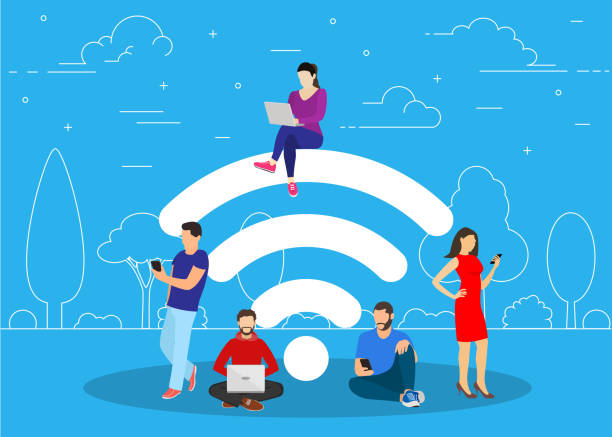By Metohuey Adoglo
In cyberspace, should freedom be the key? A world unbarred, where knowledge flows so free, Empowering dreams for all, an open spree. Can providers bear the cost? Let’s see. For the underprivileged, a chance to foresee, With free internet, a future bright we decree.
Read More: Caught in the Web –Addressing Internet Addiction in Africa
The idea of free internet has been a subject of fervent debate, with proponents arguing that universal access to the digital world can significantly transform societies and improve lives. However, the question remains: Should internet connection be free, and is it even possible?
While the concept of free internet may sound utopian, several initiatives worldwide have demonstrated its feasibility. Public Wi-Fi networks in urban centers and community-driven internet projects have shown that providing free access is indeed possible. By making internet connectivity free, the potential benefits are numerous.
Firstly, free internet would bridge the digital divide and empower underprivileged communities. Access to information, educational resources, and job opportunities would no longer be limited to those who can afford it, ensuring a more equitable society.
Read More: The Business of AI in Africa –Unlocking Opportunities for Innovation
Secondly, free internet can catalyze economic growth. Increased access could lead to greater online entrepreneurship, job creation, and e-commerce, ultimately boosting local and national economies.
However, the question of whether internet providers can afford to offer free internet is a significant challenge. Building and maintaining infrastructure, ensuring reliable speeds, and addressing security concerns all require substantial investments. Alternative funding models, such as government subsidies, public-private partnerships, or ad-supported networks, must be explored to sustain free internet initiatives.
The section of society that would benefit most from free internet is undoubtedly the marginalized and economically disadvantaged. Students in remote areas could access quality education, entrepreneurs could expand their reach, and the underprivileged could access government services and critical information for free.
Read More: The Vital Role of Social Networking Services for Tech Startups and Business Incubators
The concept of free internet holds immense potential to empower communities, foster economic growth, and promote inclusivity. While the obstacles to achieving this vision are substantial, innovative approaches and collaboration between stakeholders could lead to a more connected and prosperous world. By working together, we can make progress towards making internet access a universal right, bridging the digital divide and transforming lives for the better.
Our Story So Far. Your Dreams Matter, Your Stories Matter #DreamsTalks #AfricantechSpace pic.twitter.com/seZElwurGq
— Africanian News (@africaniannews) July 3, 2023









